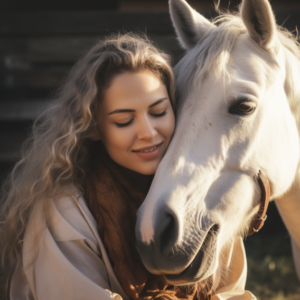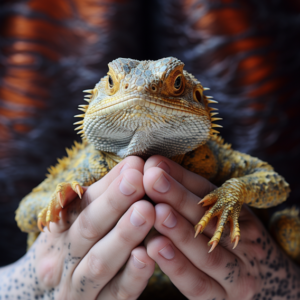Trauma can profoundly affect the lives of animals, just as it does for humans. Whether it’s due to abuse, neglect, accidents, or other distressing experiences, animals can carry the emotional and physical scars of trauma. Reiki, an ancient Japanese energy healing technique, offers a path to recovery for animals who have suffered trauma. In this article, we’ll explore how Reiki can help animals heal from traumatic experiences and regain their physical and emotional well-being.
Understanding Trauma in Animals
Trauma in animals can manifest in various ways, including fear, anxiety, aggression, withdrawal, physical ailments, and behavioral issues. These symptoms can result from a range of traumatic experiences, from abuse and neglect to accidents and natural disasters.
The Role of Reiki in Healing Trauma
Reiki is based on the principle of channeling universal life force energy to promote healing, balance, and relaxation. It provides a safe and non-invasive method for addressing trauma in animals. Reiki can be offered in-person, where the practitioner is physically present, or as distance healing, where the practitioner sends energy from afar.
Benefits of Reiki in Trauma Recovery for Animals
Reiki can play a pivotal role in the recovery of animals who have experienced trauma:
- Emotional Healing: Trauma often leaves deep emotional wounds. Reiki can help animals release these emotional burdens, fostering emotional well-being.
- Stress Reduction: Traumatized animals frequently experience heightened stress and anxiety. Reiki sessions induce deep relaxation, reducing these stressors and promoting a sense of calm.
- Pain Management: Physical injuries resulting from traumatic experiences can cause discomfort. Reiki complements veterinary care by reducing pain and supporting the body’s natural healing processes.
- Behavioral Improvement: Reiki can contribute to positive changes in behavior by addressing the emotional and physical components of trauma. This can make it easier for animals to adapt to new environments and regain trust in humans.
- Enhanced Bond: Reiki sessions provide an opportunity for animals and their caregivers to strengthen their bond. The shared experience of energy healing can enhance trust and understanding.
The Role of the Practitioner
A qualified Reiki practitioner is crucial in the healing process for traumatized animals. The practitioner creates a calm and safe environment when conducting a Reiki session. They serve as a channel for universal life force energy, directing it toward the animal and allowing the animal to interact with the energy as they choose.
Ethical Considerations
Before offering Reiki to a traumatized animal, obtain permission from the animal’s owner or caretaker. The intention should be solely for the well-being of the animal. Reiki should never replace necessary veterinary care when the animal is unwell.
Healing Trauma with Reiki
Reiki offers a gentle and compassionate path to healing for animals who have experienced trauma. It provides a safe space for emotional release, stress reduction, and pain management, all while fostering a deeper bond between the animal and their caregiver.
In conclusion, Reiki can be a profound tool in the recovery of animals who have endured trauma. It provides a path to healing, promoting emotional and physical well-being and offering hope for a brighter future for these resilient beings.


